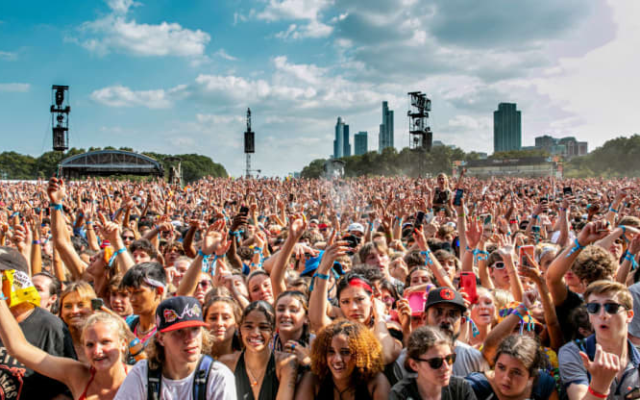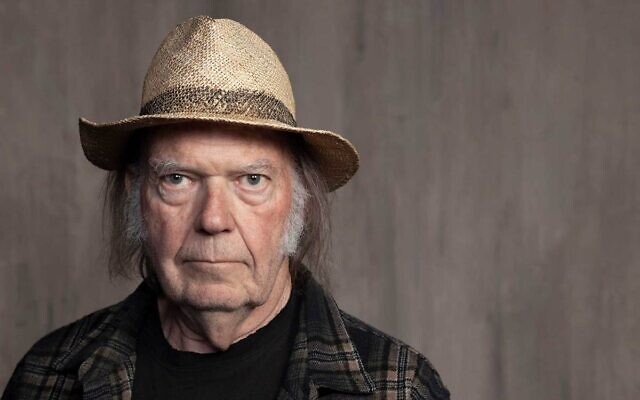COVID and Concerts: Too Much Too Soon?
COVID-19 has taken a huge toll on venues, performers and their crews. As concerts return, the big question remains: is it now safe to attend live events with large gatherings of people?

“Well, I heard Mister Young sing about…”
According to the Centers for Disease Control, the current statistics show that about 53.2 percent of Georgia’s eligible population has been vaccinated, while just over 64.7 percent of the eligible population of the United States has been vaccinated. Dr. John Cowan, a neurosurgeon from Rome, Georgia, told the AJT, “This is becoming a disease of the unvaccinated at this point. And I have only seen regrets from those who have not gotten the vaccine.” Are the current statistics promising enough to start dropping our guard, especially considering the growing variants of COVID-19 and the spike again in active cases?
Chris Stapleton recently performed at the Cellairis Amphitheatre in Atlanta. I received tickets as a gift and was excited about going. The Amphitheatre holds 19,000 people and if the CDC’s statistics don’t lie, this equates to about 10,108 people being vaccinated at the sold-out show, hardly a majority. It also means 8,892 non-vaccinated individuals were packed into this amphitheater.
As the show started, people crammed in all around us, and none of them were wearing masks. We were masked up and decided to bravely ask the people sitting around us if they were vaccinated. Lo and behold, they were not. Pretty scary. Was our health and life worth this risk? No!

The financial toll COVID-19 has taken on performers and their crews has been astronomical. The venues and promoters have suffered as well. So, the big question remains: is it now safe to attend live events with large gatherings of people? Vaccines are now readily available for everyone thirteen or older. Yes, there remains a large part of the population that does not believe the vaccine is necessary or relevant and continues to protest it. These people question how it got to market so quickly. Since the days of SARS back in 2002–4, scientists and researchers have been working on an mRNA vaccine to combat these types of acute respiratory viruses.
The Foo Fighters played a show back in June at Madison Square Garden that required proof of full vaccination or a negative test within the last 72 hours of the show for those aged 16 and under. Did non-vaccinated people have the right to protest being denied entry? Sure, they had that right. But do they have the right to endanger hundreds of people around them? I say kudos to the Foo Fighters for doing the right thing and keeping their audience somewhat safer.
Despite being fully vaccinated, people are still getting COVID, although their cases are not as severe or life-threatening as those who are unvaccinated. Just recently, the rock band Kiss had to postpone several shows due to band members Paul Stanley and Gene Simmons testing positive for COVID-19, despite being fully vaccinated.
Green Day recently played a show at Oracle Park in San Francisco to a crowd of over 50,000 people. To enter, concertgoers had to prove that they were either vaccinated or had tested negative for COVID-19. Concertgoers who didn’t get tested or vaccinated were required to wear a mask for the entire concert. This was somewhat of a compromise, but is it still enough protection for everyone? Can venues effectively enforce “social distancing and mask wearing” at heavily attended gatherings like the Chris Stapleton concert I ran out of on Aug. 29? All the seating was side-by-side, and no one within view was wearing a mask.
Now back to Neil Young. I look forward to watching the Farm Aid concert every year, as I support the cause and get to see Young, who has performed at every Farm Aid event since 1985 to raise awareness about the loss of family farms and gather funds to keep families on their land. Young has taken a stance this year and will not be performing in the festival’s concert on Sept. 25, citing his concern over concerts being superspreader events. Young rails against the influence of “money and business,” and says that while musicians like himself should take a stand, “it will take the big promoters, managers and agents to make the difference. If it’s all about money, I think they should protect the people who are their livelihood.”

He further named Live Nation and AEG Entertainment, saying that “they control much of the entertainment business. They hold the power to stop shows where thousands congregate and spread. It’s money that keeps it going. Money that motivates the spreading. The big promoters are responsible for super spreaders,” he told a Rolling Stone reporter. “These giants of entertainment just renovated a lot of old venues and spent a lot of cash to do that. Now they can’t stop selling tickets to pay for it. Money and business. That doesn’t make this OK. … Folks see concerts advertised and think it must be OK to go and mingle. It’s not,” he concluded.
Finally, Live Nation, the world’s biggest concert company, said earlier in Aug. that all of its fully owned and operated venues and festivals will require all artists and fans to provide proof of vaccination or a negative COVID-19 test to attend shows. The rule will be enforced starting Oct. 4. I wish this had been in effect for the Chris Stapleton show. I have tickets to see the Rolling Stones on Nov. 11 at the Mercedes Benz Stadium in Atlanta. Thankfully, AEG announced that it will require proof of vaccination for entry effective Oct. 1. Unlike Live Nation, AEG won’t accept negative COVID tests as an alternative for entry. I, for one, will proudly display my vaccination card. While not a guarantee of complete safety, I feel good about doing my part to safeguard myself and those around me. The question remains: is this enough protection?
CDC Event Safety Recommendations — Updated Sept. 24
Key Prevention Strategies for Staff and Attendees:
- Ensure staff and attendees wear masks correctly and consistently.
- Encourage physical distancing.
- Encourage staff and attendees to cover coughs and sneezes and wash hands.
- Encourage staff and attendees to stay home if they are sick or have any symptoms of COVID-19, and to get tested for COVID-19.
- Tell staff and attendees who are not fully vaccinated and have been in close contact with someone with a confirmed case of COVID-19 to quarantine and get tested for COVID-19.
Event planners might choose to verify COVID-19 vaccination status at the time of ticket sales or entry to an event. Organizers must obey all applicable local, state, tribal, and territorial laws, regulations, and rules as they consider whether to confirm COVID-19 vaccination status. If organizers choose to require COVID-19 vaccination for participation in an event, they should do so in a manner that is respectful to staff and attendees and consistent with applicable privacy laws and standards.
- Arts and Culture
- Community
- Lou Ladinsky
- Chris Stapleton
- Verizon Amphitheater
- Alpharetta Georgia
- Lollapalooza
- Grant Park
- Chicago Illinois
- Neil Young
- Centers for Disease Control
- GEORGIA
- Vaccinated
- Dr. John Cowan
- COVID-19
- Cellairis Amphitheatre
- Atlanta
- non-vaccinated Masks
- Venues
- Promoters
- Performers
- Crew
- Vaccines
- SARS
- mRNA vaccine
- acute respiratory viruses
- Scientists
- Researchers
- Foo Fighters
- Madison Square Garden
- proof of full vaccination
- negative test
- COVID
- kiss
- fully vaccinated
- paul stanley
- Gene Simmons
- Green Day
- Oracle Park
- San Francisco
- “social distancing and mask wearing”
- Farm Aid concert
- Ameris Bank Amphitheatre
- Super Spreaders
- Live Nation
- Concerts
- AEG Entertainment
- Rolling Stones
- Mercedes-Benz Stadium
- physical distancing
- quarantine
- Arts



comments